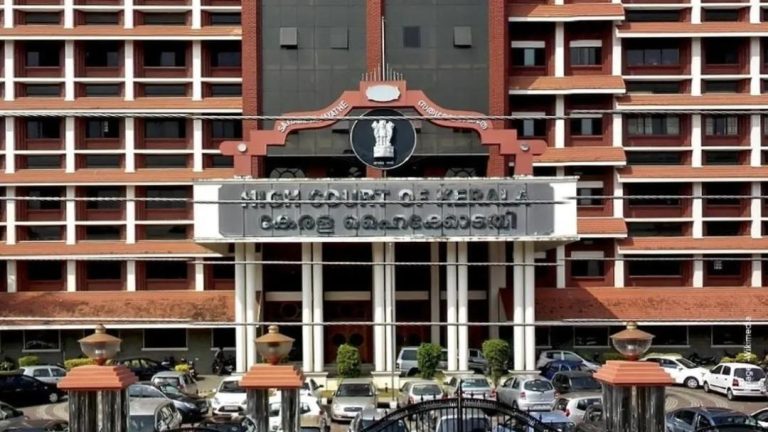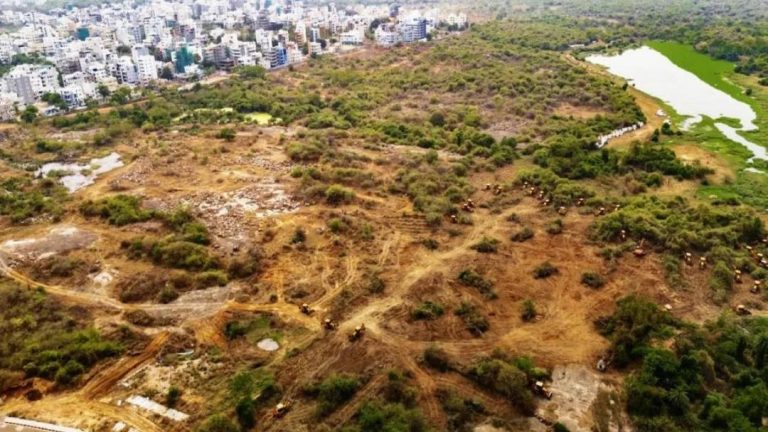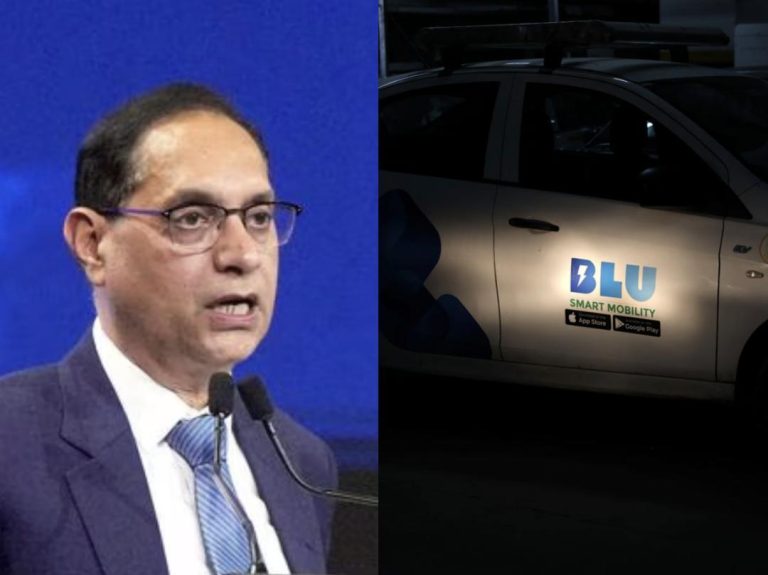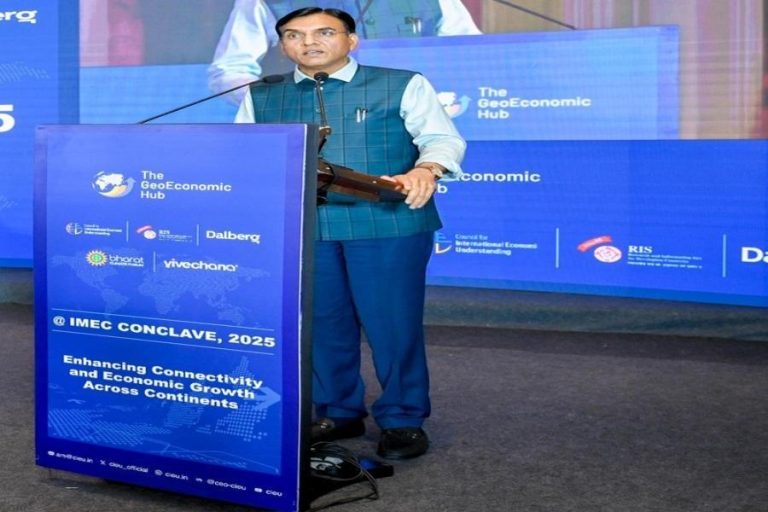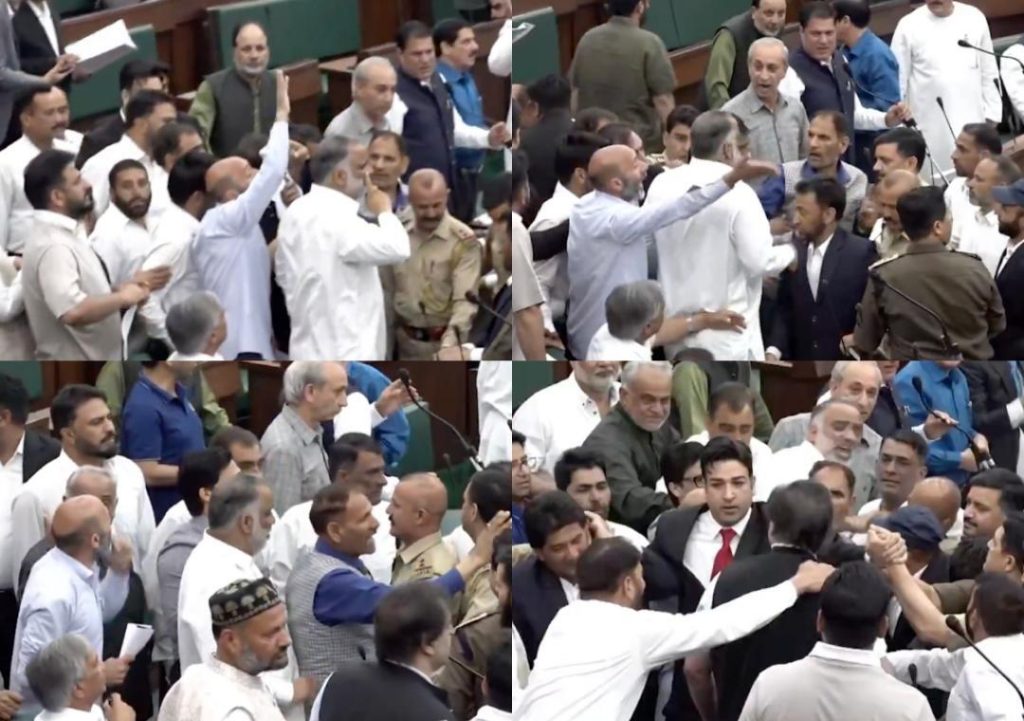
Ruckus inside J&K Assembly continues for second day over Waqf Act
The Jammu and Kashmir Assembly witnessed a ruckus for the second consecutive day on Tuesday, with opposition parties demanding a discussion on the Waqf Act. The Assembly was adjourned for 30 minutes after the Speaker, Abdul Rahim Rather, refused to allow a debate on the issue.
On Monday, the Assembly was also adjourned after the Speaker denied a motion moved by National Conference MLAs to adjourn Question Hour to discuss the Waqf Act. The opposition parties have been demanding a discussion on the Act, which was passed by the government last week, amidst allegations of biased implementation and lack of transparency.
The Waqf Act, passed by the Jammu and Kashmir government, aims to regulate and manage the Waqf properties in the state. The Act defines Waqf as “immovable property, movable property, or any interest in any property, held or acquired by a Waqf, i.e., a permanent dedication by a Muslim of any property for the purpose of any object of public utility, charity or religious purpose.”
However, the opposition parties have raised several concerns over the Act, including allegations that it is biased towards the Muslim majority community and that it does not have adequate provisions for the protection of Hindu and Sikh shrines.
On Tuesday, the opposition parties, including the National Conference and the Peoples Democratic Party, staged a protest in the Assembly, demanding a discussion on the Waqf Act. The National Conference MLA, Ali Mohammed Sagar, moved a motion to adjourn the Question Hour to discuss the Act, but the Speaker refused to allow it.
The Speaker’s decision was met with strong protests from the opposition parties, who shouted slogans and tried to disrupt the proceedings. The Assembly was adjourned for 30 minutes after the situation got out of control.
The opposition parties have accused the government of trying to suppress their voices and not listening to their concerns. “The government is trying to suppress our voices and not allowing us to raise our concerns on the Waqf Act,” said Sagar. “We will not let our voices be silenced and will continue to fight for the rights of all communities.”
The government, on the other hand, has defended the Act, saying that it is necessary to regulate and manage the Waqf properties in the state. “The Waqf Act is necessary to protect the Waqf properties and ensure their proper management,” said a government spokesperson. “We will not allow any attempt to disrupt the functioning of the Assembly and will continue to work for the welfare of all communities.”
The controversy over the Waqf Act has highlighted the deep-seated tensions between the Muslim majority community and the Hindu minority community in Jammu and Kashmir. The state has a complex history of communal tensions, and the Waqf Act has become a flashpoint in the ongoing political crisis.
The opposition parties have also accused the government of trying to polarize the state on communal lines and weaken the secular fabric of the society. “The government is trying to divide the state on communal lines and weaken the secular fabric of the society,” said a senior National Conference leader. “We will not let our secular democracy be destroyed and will continue to fight for the rights of all communities.”
In the midst of the controversy, the Jammu and Kashmir High Court has also intervened, issuing a notice to the government to explain the circumstances under which the Waqf Act was passed. The court has asked the government to file a response within a week, indicating that it is serious about the issue and will not let the government suppress the voices of the opposition parties.
The ruckus inside the Jammu and Kashmir Assembly over the Waqf Act is a clear indication of the deep-seated tensions and divisions in the state. The controversy has highlighted the need for greater transparency, accountability, and respect for the rights of all communities.

